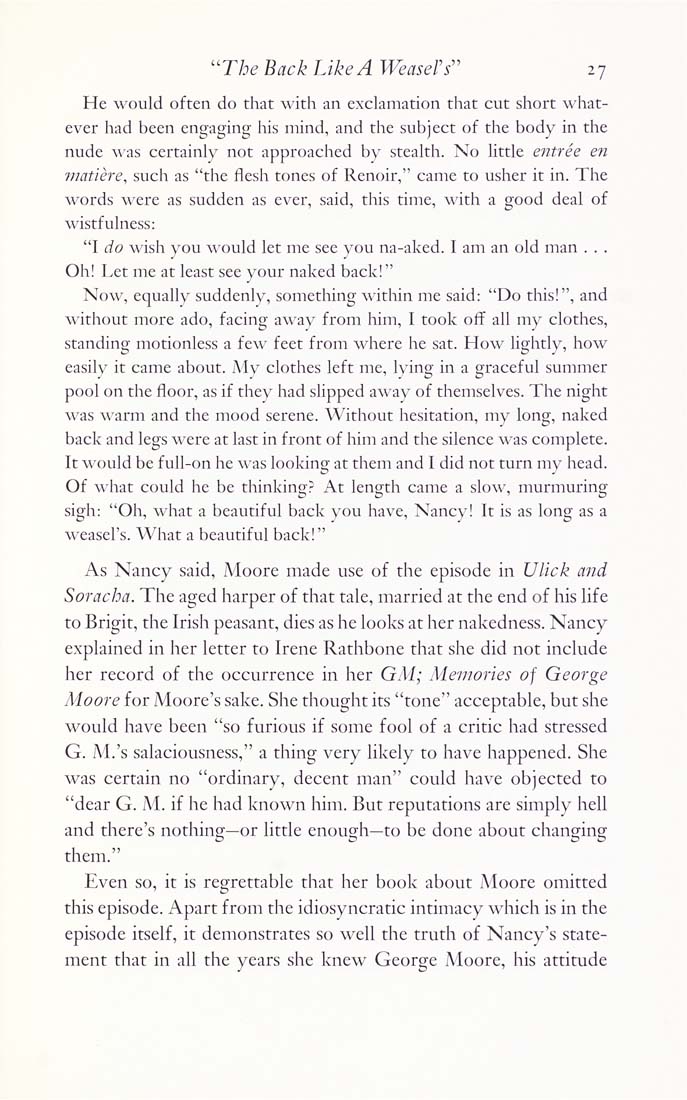Columbia Library columns (v.28(1978Nov-1979May))
(New York : Friends of the Columbia Libraries. )
|
||
|
|
|
|
| v.28,no.1(1978:Nov): Page 27 |

"The Back Like A Weasel's" 27 He would often do that with an exclamation that cut short what¬ ever had been engaging his mind, and the subject of the body in the nude was ceitainly not approached by stealth. No little entree en matiere, such as "the flesh tones of T^enoir," came to usher it in. The words were as sudden as ever, said, this time, with a good deal of wistfulness; "I do wish you would let me see you na-aked. I am an old man . . . Oh! Let me at least see your naked back!" Now, equally suddenly, something within me said: "Do this!", and without more ado, facing away from him, I took ofl^ all my clothes, standing motionless a few feet from where he sat. How lightly, how easily it came about. My clothes left me, lying in a graceful summer pool on the floor, as if thev had slipped away of themselves. The night was warm and the mood serene. Without hesitation, my long, naked back and legs were at last in front of him and the silence was complete. It would be full-on he was looking at them and I did not turn my head. Of what could he be thinking? At length came a slow, murmuring sigh: "Oh, what a beautiful back you have, Nancy! It is as long as a weasel's. What a beautiful back!" As Nancy said, Moore made use of the episode in Ulick and Soracha. The aged harper of that tale, married at the end of his life to Brigit, the Irish peasant, dies as he looks at her nakedness. Nancy explained in her letter to Irene Rathbone that she did not include her record of the occurrence in her GM; Memories of George Moore for Moore's sake. She thought its "tone" acceptable, but she would have been "so furious if some fool of a critic had stressed G. Ai.'s salaciousness," a thing very likely to have happened. She was certain no "ordinary, decent man" could have objected to "dear G. M. if he had known him. But reputations are simply heil and there's nothing—or little enough—to be done about changing them." Kven so, it is regrettable that her book about Moote omitted this episode. Apart f tom the idiosyncratic intimacy which is in the episode itself, it demonstrates so well the truth of Nancy's state¬ ment that in all the years she knew George Moore, his attitude |
| v.28,no.1(1978:Nov): Page 27 |







